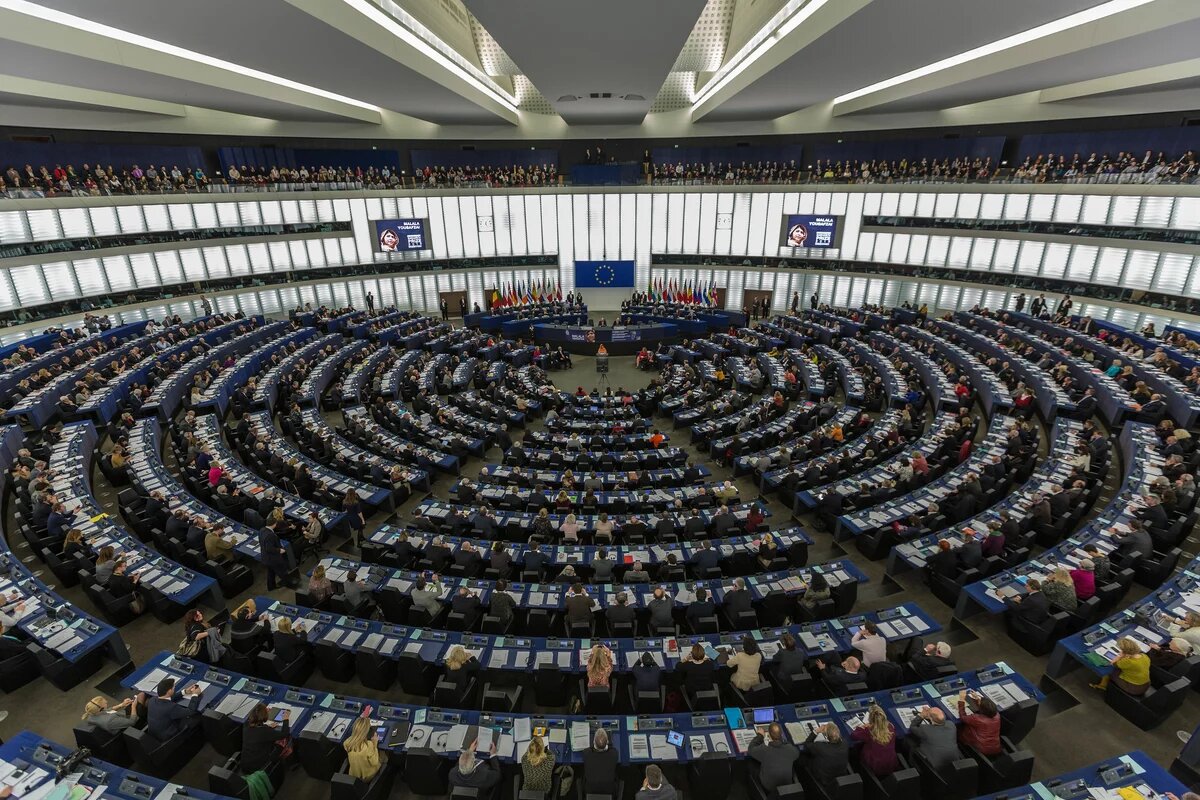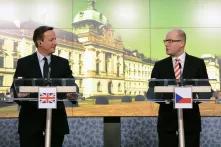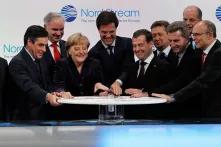
There’s an active interplay between anti-liberal movements and political parties within the EU and an authoritarian challenge from the outside, especially from Russia, Ralf Fücks – president of Heinrich-Böll-Stiftung – told EurActiv Czech Republic.
EurActiv: The EU is facing several challenges coming from both outside and inside. In order to bring about a more coherent integration among the member states, should it focus primarily on the external or internal threats in hopes of relieving internal tensions and decreasing the level of populism across the continent?
Ralf Fücks: We cannot separate the external and internal conflicts that we are currently facing. There’s an active interplay between anti-liberal movements and political parties within the EU and an authoritarian challenge from the outside, especially from Russia. Today, Russia is the headquarters of an anti-liberal Internationale. Until recently, we haven’t been aware of the extended networks of influence that the Kremlin has established via business alliances, media channels, think-tanks and foundations. In the meantime, Russia has become an influential player in European politics.
How should the democratic forces in our societies address this?
We have to become more assertive in the battle of values and ideas. But we cannot win that battle unless we get our acts together at home, especially in terms of social coherence and a sense of security in times of rapid change. The crisis of liberal democracy that we are currently facing is closely linked to the challenges posed by economic globalisation, global migration and rapid technological change. Parts of our society feel threatened by the speed and depth of the changes we are facing. Providing a basic level of security and a sense of belonging is absolutely key for the stability of democracies. We need to rebuild our public institutions, especially the education system, in order to provide equal opportunities and social participation for all citizens. Populists are playing with fear; this is their major currency. We can only overcome fear if we rebuild trust in democratic institutions and assist people in coping with economic and societal change in a more pro-active way.
Of these challenges you have just mentioned, is there one that can be singled out as a common challenge for every country in the EU? For example, Russian propaganda seems to be more relevant for Central and Eastern Europe…
But it’s very active in Western countries, too. Look at France and the close relations between the Kremlin and the Front National or at Germany, where Russian propaganda and Russian money play a significant role in shaping public opinion. Our former chancellor, Gerhard Schröder, is now on the payroll of Gazprom promoting the Nord Stream II pipeline project and serving as a political lobbyist for the Kremlin. The Russian leadership is very much focused on Germany because they see it as a potential swing state. Their strategic goal is to break Germany out of the Transatlantic Alliance and to establish a Moscow-Berlin axis.
As much as one cannot underestimate Russian influence in Europe, frankly, in southern Europe, economic underperformance and unemployment seem to be greater challenges than the Kremlin…
External political intervention into the EU can only work if there is fertile domestic soil for this kind of anti-liberal, authoritarian and nationalist ideology. Part of that domestic problem is the fact that parts of our societies are disconnected from the benefits of economic growth and globalisation. The situation is more severe in southern Europe due to the continuing fallout of the 2008 financial crisis.
One of the major political lessons to be learnt is that we have to switch from an austerity-only approach to pro-active investment into public commons such as education, health care, high-speed internet, railway systems and affordable housing. We need to create a new economic dynamic in Europe by investing in renewable energy, electric mobility, recycling, etc.
The green energy transition is the most promising part of this modernisation effort. It offers multiple dividends: it will decrease greenhouse-gas emissions and imports of fossil fuels; it will increase domestic energy production and move us to the forefront of the global energy revolution. Take a look at what’s going on in China in terms of green energy, resource efficiency and e-mobility. Europe needs to step up its efforts in order to not fall behind.
Since we’re talking about the roots of current populist tendencies around the EU, let’s take a closer look at one of them – the refugee and migration crisis. This issue spans the EU, but the reaction by countries in Central and Eastern Europe has been particularly intense. How do you perceive the positions taken by these countries vis-à-vis solutions proposed at the European level?
The refugee issue is a litmus test for the EU’s ability to cope with political and cultural differences within the EU. It was mere wishful thinking to expect that we could develop a kind of fast-track common refugee and migration policy. For Central and Eastern European countries, it’s still about national identity, self-determination and sovereignty. This shouldn’t surprise us given these countries’ historical background. In Germany, France and the Netherlands, we have had an intense debate on immigration and multi-ethnic democracy that has lasted for decades. Yet even here, welcoming people of colour and Muslims as citizens remains highly controversial.
So, where do we go from here? On the one hand there should be common obligations for all EU member states with respect to the Geneva UN Refugee Convention and respecting refugees’ basic human rights. At the same time, however, we need some room for differentiation within the EU. It would be wise to give the CEE countries more time and flexibility to adapt, but they should also be reminded of what it means to be a member of the EU as a community of values. Developing a political consensus within the European Union is not a matter of command and control, but rather one of ongoing public debate.
Actually, it doesn’t really seem that the European Commission shares this same view of giving manoeuvring room to countries in terms of migration policy. In proposals to reform the Dublin system, one can still find an automatic redistribution mechanism, which is an irritant for many Central European countries…
I would prefer to have an agreed formula for the redistribution of refugees based on GDP per capita, the situation on the labour market, etc., but I’m afraid this will not happen in the near future. There will be no consensus on obligatory redistribution without a limit on the number of refugees individual countries will have to accept. But instead of punishing the unwilling, we should focus on incentives. For example, the EU could offer financial support to cities that are willing to absorb a significant number of refugees.
The so-called refugee crisis is a learning process. We shouldn’t stick to one-size-fits-all solutions on every political issue, but instead build voluntary cooperation and coalitions of the willing. Participating countries would create an avant-garde that may sooner or later convince others to join. We will only change attitudes towards refugees if some countries take the lead and demonstrate that integrating these people can become a success story.
This looks like the basis for a new model of European integration…
Indeed. In my view, we should rethink the model of European integration and look for a new combination of common standards and obligations with greater flexibility. The European Union is about unity in diversity. We should not try to dissolve this balance in favour of a particular direction. Even today, the EU is too diverse in economic, political and cultural terms to impose the same policies on all member states. This will be even more the case with an EU of 35 countries or more. Hence, we need more room for various layers of integration in different political areas. Take the example of developing a common defence policy: why not start by building a transnational army of German, French and Polish forces instead of waiting until there’s a consensus among all the member states?
Aren’t you afraid that this will bring about further fragmentation in the EU rather than cohesion?
No, I see it the other way round: by trying to force everyone into the same policies, we will only aggravate centrifugal tendencies. Of course, we need to defend our common European institutions – the European Parliament, the Commission, the internal European market and the basic values embodied in European treaties. Within this framework, however, we need to expand the space for diversification. This is all the more true if we don’t want to abandon the prospect of enlargement. As was stated in Copenhagen, every European country that meets the basic EU criteria could become a member state. This should also apply to Ukraine, provided it is willing to adopt European standards.
If we keep to the idea of “Europe united and free”, we have to reconcile enlargement with deeper integration. This is why the EU needs a more flexible architecture. And maybe such a formula could even keep the British from leaving.
So this is your major recommendation for how to combat populism and extremism within the EU?
Part of the answer is to depart from the idea that European unification necessarily means a centralisation of power in European institutions. There’s a clear message in all popular votes on the European project that people want to keep political decisions under their own control. Thus, I strongly recommend keeping to the subsidiary principle, although I agree that political performance is no less important than constitutional issues. Governments simply have to deliver in terms of infrastructure, public services, security and economic opportunities.
Your foundation operates in Central and Eastern European countries, where it has been active in supporting public debates on many issues including how to combat anti-liberal tendencies and political extremism. From your perspective, what needs to be done at the national level in this regard?
I’m not in a position to tell countries what to do, but I’m convinced that strengthening democracy is very much about the integrity and quality of public institutions: government accountability, the integrity of parties and parliaments, judicial independence, freedom of the press and high-quality public education. Civil society has to play a major role, too, both in terms of government control and in taking responsibility for public affairs. Finally, support for liberal democracy also depends on economic performance and social inclusion.
If we look at the Czech Republic with respect to your last point, it seems that we don’t have a major problem on the economic front at the moment, but what we do have are a finance minister with multiple conflicts of interest and a president under Russian influence…
You are asking me about the cure? Well, it’s again about the division of power, independent media and an active civil society. Let the parliament, the media and civil society do their jobs, and ultimately the voters will return their verdict. Interestingly, in most European countries you have a lively civil society with lots of idealistic people. But these folks don’t usually get involved in party politics. This is one of the greatest challenges – how to transform engagement in civil society into institutional politics.
In most post-communist countries, people are accustomed to the idea that politics is a dirty business, and thus they don’t want to be involved. Many of them are engaged in civic activities, however. At a certain point, Václav Havel crossed the line and took political responsibility. New leaders don’t grow on trees; they have to emerge from civil society.
Let’s end on optimistic note. Can you see positive tendencies in the civil societies of Central Europe?
If we look at Poland, the ruling party is following a path of illiberal policy, monopolisation of power and government control of the media, but on the other hand we have the encouraging experience of strong civil resistance. The recent conflict around the reactionary abortion law was an encouraging signal. Civil society was able to force the ruling coalition to backpedal. Civil society matters, and I still hope that the spirit of 1989 will prevail. We will not leave the field to those forces who are betraying the basic ideas of Europe.
The interview was conducted in Prague, 17 October 2016, during the 20th Forum 2000 international conference by Jan Vitásek and firstly published on EurActiv.com.

